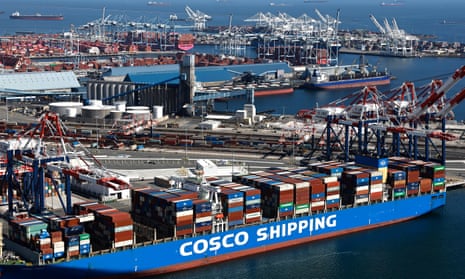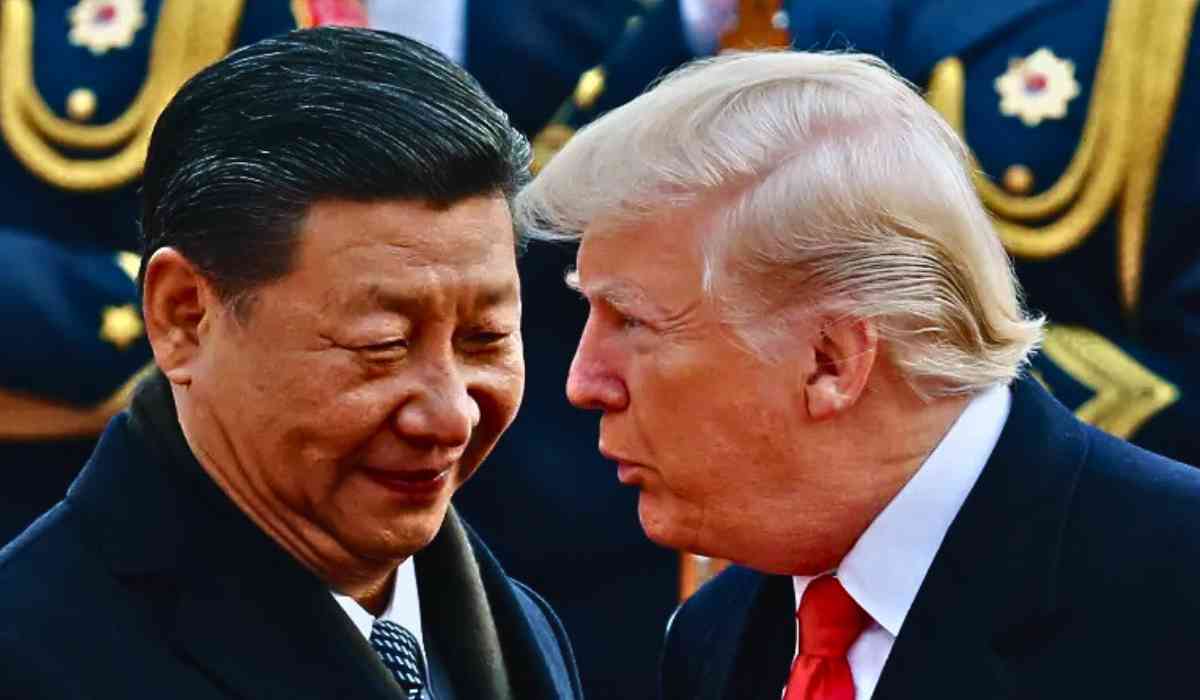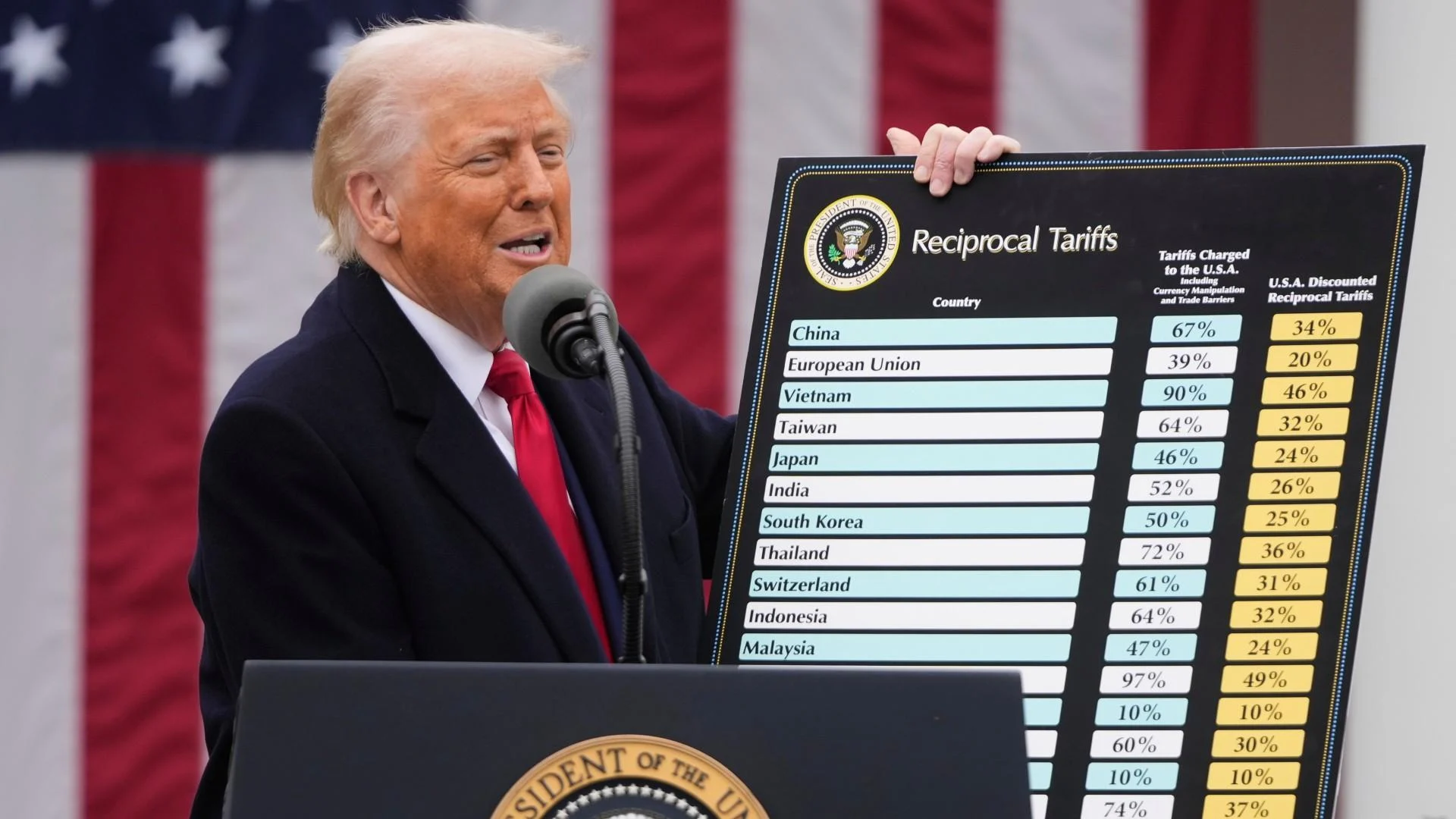In a dramatic escalation of the ongoing trade tensions between the United States and China, President Donald Trump has sharply criticized China for imposing a 34% tariff on all U.S. goods. This move by China is in direct response to Trump's recent decision to impose a similar tariff on Chinese imports. The situation has sparked intense debate and raised concerns about the potential impact on the global economy.

Background: The Trade War Escalation
The trade war between the U.S. and China has been simmering for years, with both countries imposing tariffs on each other's goods. Recently, President Trump announced a significant increase in tariffs on Chinese imports, citing unfair trade practices and a desire to protect American industries. China, in turn, has retaliated with tariffs of its own, arguing that the U.S. actions violate international trade rules and harm China's economic interests.
Trump's View: China's "Panic"
President Trump took to social media to express his views on China's response, stating, "China played it wrong, they panicked — the one thing they cannot afford to do!" This statement reflects Trump's belief that China overreacted to the U.S. tariffs, which he sees as a necessary measure to address trade imbalances.
Trump's criticism of China's actions suggests that he believes the tariffs will ultimately harm China more than the U.S. However, this perspective is not universally shared. Many economists argue that both countries will suffer economic losses due to the tariffs, as they increase the cost of goods for consumers and disrupt global supply chains.

China's Response: Tariffs and Export Controls
China's decision to impose a 34% tariff on U.S. goods is part of a broader strategy to counter the U.S. trade policies. In addition to tariffs, China has also announced plans to tighten export controls on rare earth elements, which are crucial for the production of high-tech products such as smartphones and electric vehicle batteries. This move could significantly impact U.S. industries that rely on these materials.
WTO Complaint
China has also filed a complaint with the World Trade Organization (WTO), arguing that the U.S. tariffs violate international trade rules. This legal challenge reflects China's determination to use all available channels to address what it sees as unfair trade practices by the U.S.
Economic Impact
The escalating trade tensions have significant implications for both countries. The tariffs imposed by both sides will increase the cost of goods for consumers, potentially leading to higher inflation and reduced economic growth. The impact on global markets has already been felt, with stock markets experiencing volatility in response to the trade war developments.
U.S. Perspective
From the U.S. perspective, the tariffs are seen as a necessary measure to correct trade imbalances and protect American industries. Trump has argued that other countries, including China, have taken advantage of the U.S. for years through unfair trade practices. However, critics argue that the tariffs could harm U.S. businesses that rely on imports from China and may not achieve their intended goals.
China's Economic Challenges
For China, the trade war comes at a challenging time. The country is facing economic slowdowns and a debt crisis in its property sector. The tariffs imposed by the U.S. could further complicate China's economic recovery efforts.
Global Implications
The trade war between the U.S. and China has broader implications for the global economy. Other countries are watching closely, as the conflict could disrupt international trade patterns and lead to a recession. The WTO complaint filed by China highlights the potential for this dispute to involve other nations and international bodies.

Conclusion
The trade tensions between the U.S. and China are complex and multifaceted. While President Trump views China's response as a sign of panic, others see it as a necessary measure to protect Chinese economic interests. As the situation continues to unfold, it remains to be seen how these actions will impact both countries and the global economy.
Ultimately, finding a resolution to the trade war will require careful negotiation and a willingness from both sides to address their differences through dialogue rather than tariffs. Until then, the world will continue to watch this economic showdown with great interest and concern.
Key Points to Consider:
-
Trade War Escalation: The U.S. and China have significantly increased tariffs on each other's goods, escalating the trade war.
-
China's Retaliation: China imposed a 34% tariff on U.S. goods and tightened export controls on rare earth elements.
-
Economic Impact: The tariffs could lead to higher costs for consumers, disrupt supply chains, and potentially harm economic growth.
-
Global Implications: The conflict may involve other countries and international bodies, such as the WTO.
-
Future Outlook: Resolving the trade war will require diplomatic efforts and a willingness to negotiate trade agreements that benefit both nations.
The ongoing trade war highlights the challenges of navigating complex international trade relationships. While both countries have valid concerns about trade practices, the use of tariffs as a primary tool for addressing these issues is controversial. As the situation evolves, it will be important to monitor how these measures affect not just the U.S. and China but also the broader global economy.
With inputs from agencies
Image Source: Multiple agencies
© Copyright 2025. All Rights Reserved Powered by Vygr Media.


























